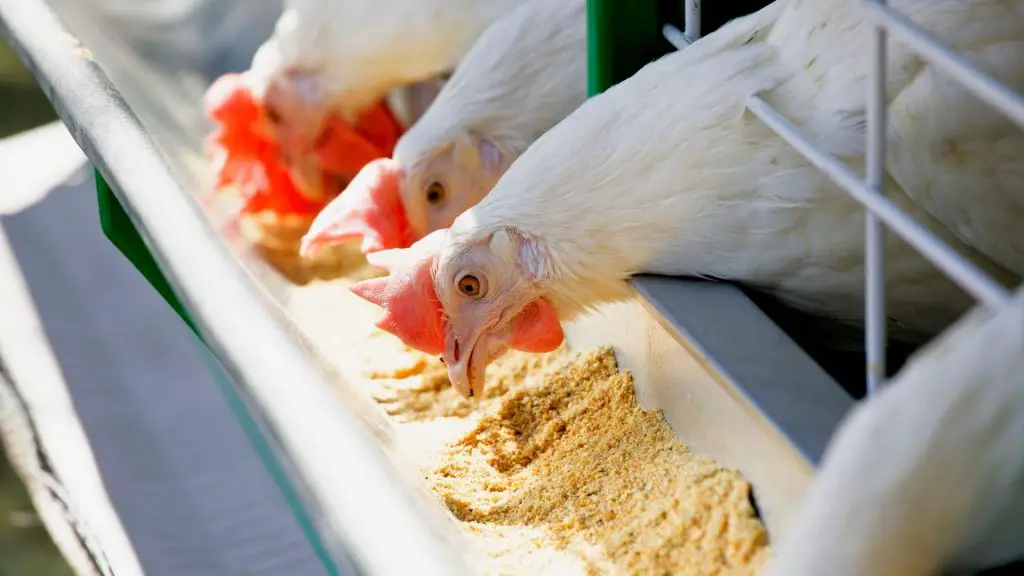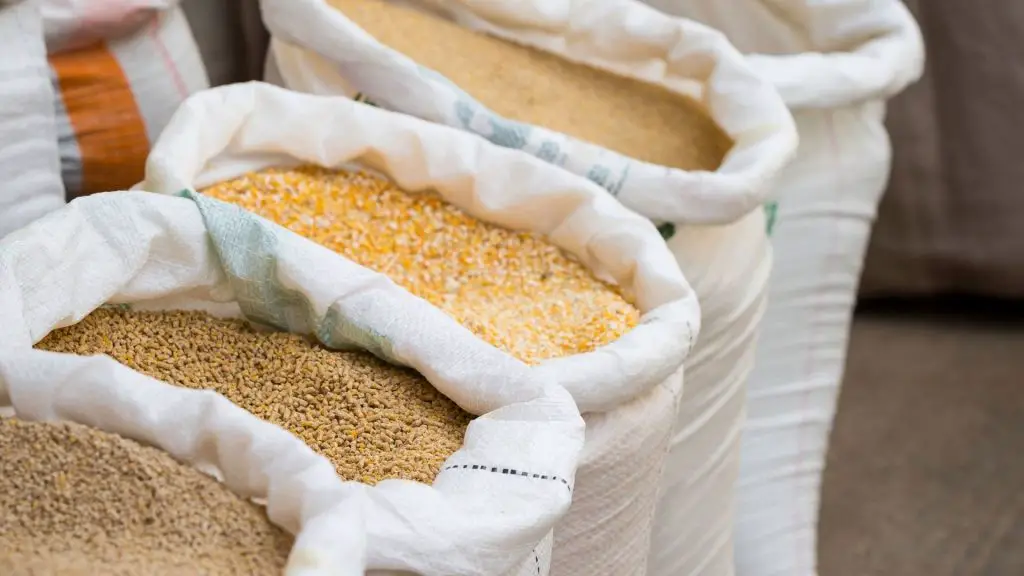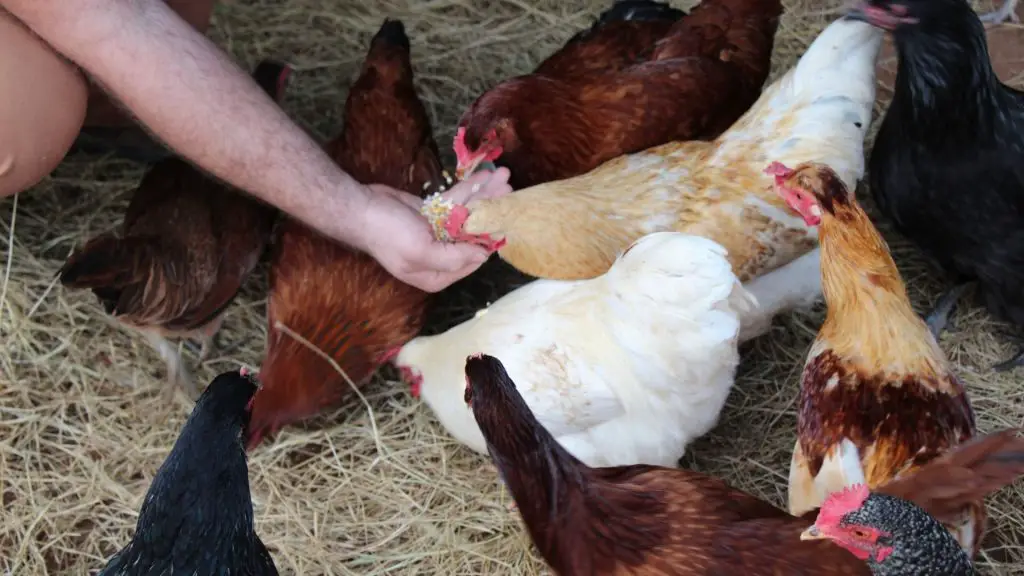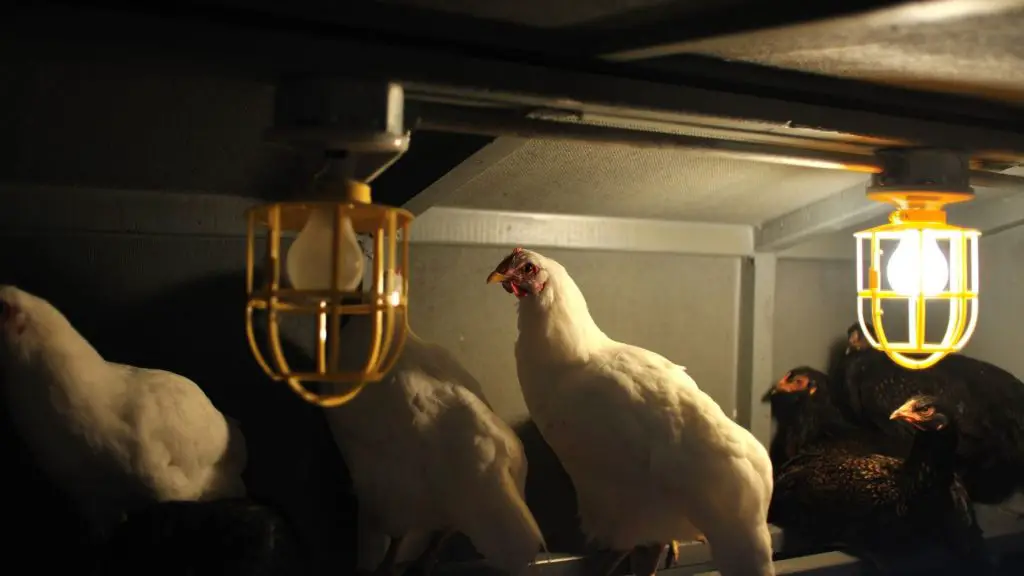Chickens, like all animals, need plenty of food to stay healthy and happy. However, determining how much food your chickens need every day can be challenging, especially if you don’t want to waste any of it.
How much feed per chicken? On average, one adult chicken will eat 3 pounds (1.4 kg) of feed each week. However, chickens who lay eggs or get plenty of exercises might need more than that. In addition, chickens need around one extra pound (0.45 kg) of feed every week in the year’s colder months.
Are you still unsure of how much feed you need to give your chickens? This article will address how much food a chicken needs daily, week, and month. It will also cover when you need to give your chickens more or less food.
How Much Does a Chicken Eat per Day?

The amount of food that your chicken needs every day will differ depending on its species, age, weight, and egg production level. In addition, if you’re raising your chicken for its meat, you may want to give it more food to support weight gain.
On average, one adult egg-laying or broiler hen needs about 0.4 pounds (181 grams) of well-balanced food every day. However, the larger your chickens are, the more food they will need.
Also, if your chickens lay eggs, you’ll need to ensure they get plenty of extra food since some chickens won’t lay eggs if they run out of feed.
Still, chickens usually need more food in the winter months since it takes more calories to keep warm. You should add one extra pound (0.45 kg) of food per chicken to ensure that your poultry gets enough food to maintain a healthy weight in winter weeks.
How Much Does a Chicken Eat per Month?

Preparing for your flock’s feed needs is imperative if you want them to stay healthy, well-fed, and happy.
You should expect one adult hen to eat around 3 lbs (1.4 kg) of food every week, which is just over 11 lbs (5 kg) every month. So, depending on how many chickens you have, you’ll need to stock up on enough food to go around.
Still, you should never store your chicken feed for over two months at a time. That’s because the feed may lose some of its nutrients as it loses its freshness. So, keeping your feed hanging around too long could interrupt the development of your poultry.
For best practices, you may want to buy your chicken feed every month. That way, you won’t have to worry about running out in a pinch.
Be sure to calculate how much food you’ll need based on how many chickens you have, and allow for some extra just in case of worms, wetness, or spillage.
To store your chicken feed, ensure that you put it in a dry, dark place that isn’t likely to harbor mold, mildew, or insects. Usually, keeping it in an airtight container, like a large plastic garbage can, will keep the food’s nutrients in and keep unwanted pests and fungus out.
How Much Grain Does a Chicken Eat?
Carbohydrates from grains such as corn, wheat, millet, oats, and barley make up the largest percentage of a chicken’s diet. Still, it’s crucial that a chicken’s food is well balanced and contains enough:
- Protein
- Calcium
- Vitamins
- Fats
A chicken’s daily diet should be about 10% to 15% cereal grains for a healthy digestive system and enough fiber to keep their gizzards healthy. Still, it’s essential to ensure that your chicken feed includes at least 2% crude fiber from cereal grains.
Cereal grains, often called scratch because chickens scratch at the ground to find them, can help chickens develop healthily, but they aren’t necessary as long as you feed your flock a healthy grain and protein-based diet.
According to poultry exports from Oregon State University, you should only give your chickens as much scratch as they can eat in around 20 minutes, or you can allow scratch to be 10% to 15% of your flock’s daily food intake.
Most chicken feeds use corn, wheat, and oats as their main ingredients. However, cereal grains aren’t the only things that a chicken needs to eat. Like us, chickens are omnivores, so they need plenty of protein and a small amount of fat to stay healthy.
As long as your grain-based chicken foods are fortified with plant-based proteins, fats, vitamins, and extra calcium for egg production, they’re an excellent choice for daily feeding.
When your chicken food has plenty of grains and fiber, you won’t need to give your chickens any scratch unless you want to give it as a treat while they’re out of their coop in the daytime.
If you mix your chicken feed, it’s crucial to know that you should give certain foods in different quantities to ensure that your chicken always gets the nutrients it needs. So, you should always check the label on your chicken feed before you give it to your flock.
As a general rule, a good chicken feed is made up of:
- 54% to 66% digestible or refined starches
- 10% to 15% scratch grains
- 18% to 20% protein
- 1% calcium for broilers or 3% to 5% calcium for layers (for adult chickens only)
- 4% to 6% fat
Your chicken feed should also include many vitamins and minerals.
When to Change Chicken Feed?

Changing out your chicken feed will ensure that no parasites, fungi, harmful bacteria, or other unwanted toxicants make their way into your chickens’ digestive systems.
Change out your chicken feed every time it gets wet or dirty, and keep an eye out for worms in the food. Generally, “spot cleaning” your feeder will ensure that you won’t have to change out the food too often.
If you see poop or shavings in the feed, scoop them out, ensuring that you get all of the surrounding feed along with the mess.
However, if the food gets wet, moldy, or infested with worms, you should change it out completely and clean your feeder out.
Do Chicks Need Food and Water at Night?

Chicks need to have access to food and water at all times while they’re very young to ensure that they get used to eating the chicken feed you give them. However, after they mature a bit, leaving the food out all night could cause disease and fatality in your flock.
Leave food and water out for your chicks for the first week, then remove the feed at night to prevent flip disease and keep predators away. You should always leave fresh water for your chicks and chickens, though.
While chicks are young, they need more food to put on weight and support their growth. That’s why it’s essential to constantly keep food and water out for your chicks during the first week of their lives.
However, if you continue to leave the food out 24/7 after the first week, you could overfeed your chickens, resulting in death.
Overeating in chicks is called a flip disease or sudden death. It happens when a chicken grows too quickly for its heart to keep up with the rapid growth and weight gain, resulting in a heart attack. Chickens and chicks who die of this disease are usually found lying on their back.
Sometimes, it’s impossible to stave off flip disease, especially in broiler chickens who grow rapidly. On average, 2% to 25% of a flock is lost to this disease every year. So, to keep as many of your chicks alive as possible, make sure that you remove the food at night.
In addition, leaving chicken feed out overnight could attract predators and result in fatalities. So, putting the food away at night after a chick’s first week of life is always the best practice.
Related: Chicken Feed: All You Need to Know!
List of Sources
Nutrition for the Backyard Flock
